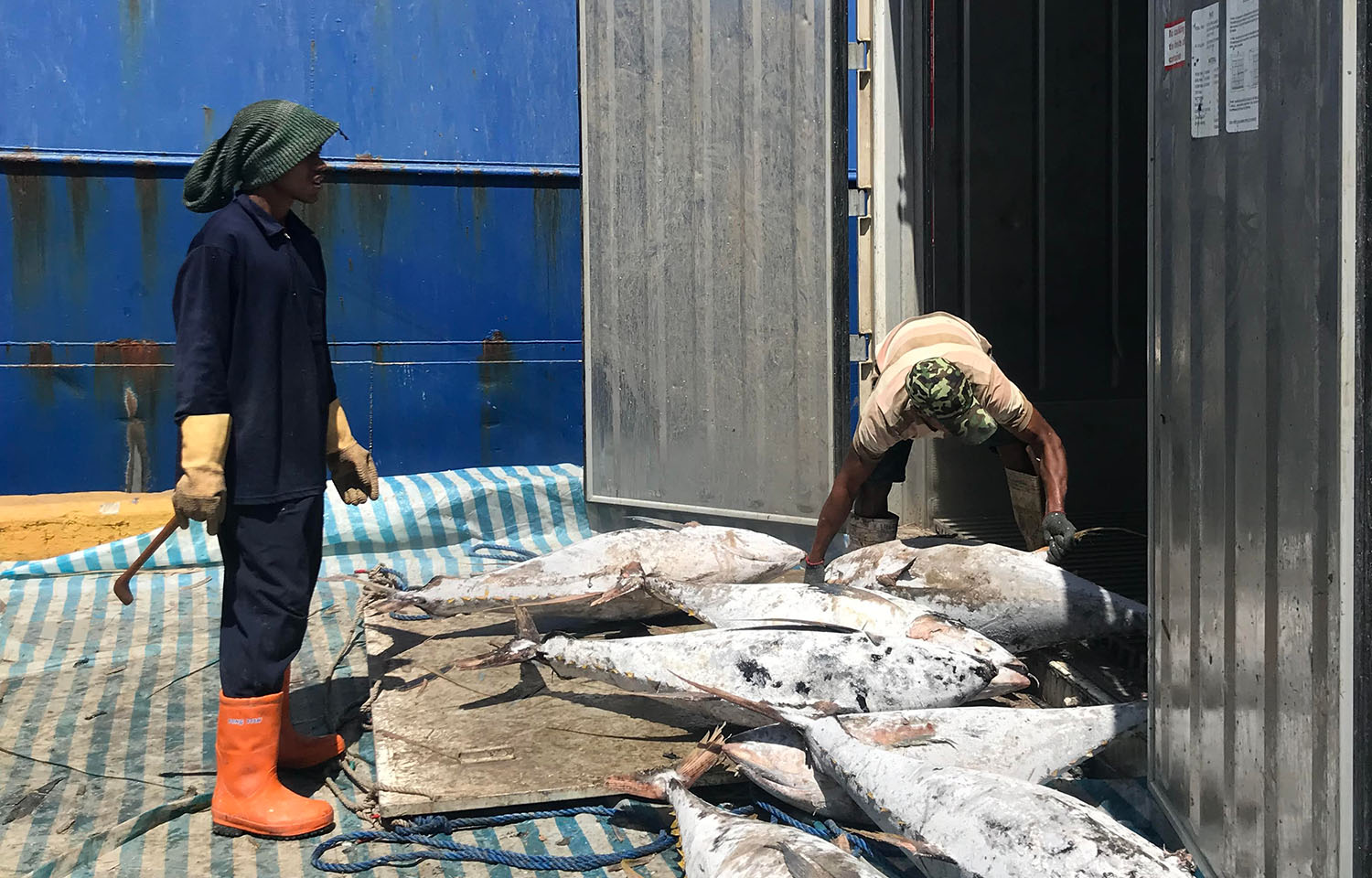The Indian Ocean Tuna Commission (IOTC) recently concluded its 28th session, with the commission adding new measures to the management of fish aggregating devices (FADs) but, once again, failing to adopt any improvements to curtail yellowfin tuna fishing.
The meeting – which ran from 13 to 17 May in Bangkok, Thailand – resulted in the IOTC adopting a new management measure for FADs covering a number of different best practices. NGOs like the International Seafood Sustainability Foundation (ISSF) and the World Wide Fund for Nature have called for more rules regarding the devices, especially after the commission failed to reach any agreement on drifting FADs (dFADs) in 2023.
This time, according to the ISSF, the IOTC has launched a management measure that includes a new definition of biodegradable FADs and a timeline for transitioning to using only biodegradable devices, an FAD register for monitoring devices throughout the IOTC’s management area, an FAD marking scheme, FAD monitoring and tracking systems, rules for reporting lost or abandoned FADs, and strengthened rules on FAD buoy activation and deactivation.
The ISSF said it “applauded” the productive meeting and the additional new rules on FADs, having previously called for most of the measures the IOTC took.
While the ISSF celebrated the moves, the Organisation des Producteurs de Thun Congelé et Surgelé (Orthongel) called the “last-minute adoption” of new FAD rules unfair to European tuna-fishing fleets that operate in the Indian Ocean – especially as less stringent provisions were made for some contracting parties in the commission. South Korea and Tanzania, because they have fewer than two purse seiners, and Mauritius and Seychelles, because they are small island states, will see a smaller reduction in operational beacons allowed per vessel compared to the European fleet.
“The additional efforts required of the European fleet pose a serious threat to the sustainability of these companies, which have been badly hit by recent crises,” Orthongel said in a release. “Orthongel deplores the lack of a level playing field between European purse seiners and those based in other countries in the region, which exploit the same resources and supply the same market. Only the adoption of a measure aimed at the biodegradability of FADs is a source of satisfaction.”
The organization also pointed out that a number of other measures intended to tackle IUU fishing were rejected or stripped down and said the European tuna fleet has been unfairly attacked in recent years for its fishing practices despite its positive track record.
“The French fleet is perfectly monitored (by VMS, ERS, and 100 percent scientific observation coverage), complies with all applicable rules (quota, FAD monitoring, social responsibility), and is one of the most innovative fleets in terms of adopting best fishing practices, which has earned it MSC certification in both the Indian and Atlantic oceans,” Orthongel said. “Too bad it doesn’t make a difference.”
While the IOTC made new management measures for FADs, it once again failed to take any action on yellowfin tuna quotas. Yellowfin tuna was first declared overfished in 2015, and since that time, the stock has continued to be overfished, with organizations like the Global Tuna Alliance urging the IOTC to take action in advance of its latest meeting.
“That is nine years of talk and no action and nine years of ignoring scientific advice. What will it take to drive change?” GTA Executive Director Daniel Suddaby said.
In 2022, the IOTC Scientific Committee published a report showing the stock remained overfished and that the TAC needed to be reduced. However, the IOTC did not adopt any plan to end overfishing of the stock, likely leading to further species degradation, according to the Blue Marine Foundation.
"Despite the best efforts of the delegation from Pakistan, who worked tirelessly to find a solution to the yellowfin tuna overfishing crisis, the IOTC missed yet another opportunity to adopt a responsible and equitable recovery plan for the stock, which will now enter its 10th year of overfishing,” Blue Marine Foundation Head of Investigations Jess Rattle said.
GTA Advocacy Lead Kerrie Robertson said many of the association’s partners have already stopped sourcing yellowfin tuna from the Indian Ocean as a result of the IOTC’s inaction.
"We will be seriously considering our next steps on this issue,” Robertson said. "Our partners' commitment to sustainable tuna sourcing does not waiver, and we will continue to amplify their united voices calling for effective measures for adoption at the next IOTC session."
The IOTC did take more action on skipjack tuna during the meeting, adopting a management procedure for skipjack that, according to the ISSF, will help the species begin to recover after overfishing for multiple years spanning 2018 to 2022.








